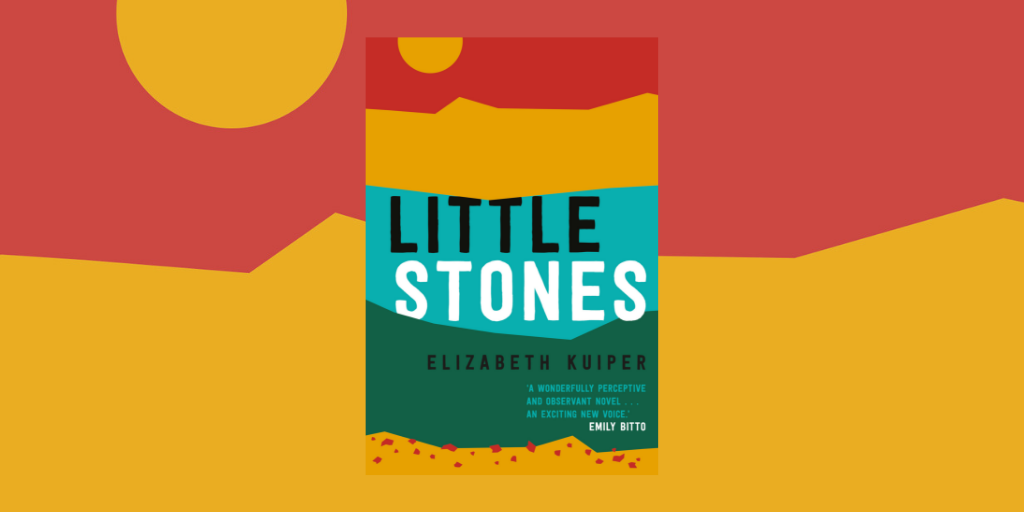
Little Stones might be the debut novel from Australian writer Elizabeth Kuiper, but it won’t be her last. The novel, of which an early version was long listed for the Richell Prize, published in Award Winning Australian Writing and received the Express Media Prize for the best work of fiction, marks the arrival of a new voice in Australian writing. One which speaks to the experiences of the numerous Australians who emigrated here from Zimbabwe to escape the political machinations of Robert Mugabe.
Kuiper, who emigrated with her mother and lived first in Perth and then in Melbourne, based the experiences of her young protagonist, Hannah, on her own life. In the novel, Hannah lives in a world where getting up early to queue for petrol is completely normal to her. She lives with her mother, and spends time with her father on weekends. Other close relationships include with her best friend Diana, her mother’s friends Stella and John, and her mother’s Shona housekeeper Ruth, who is called Gogo.
Through Hannah’s eyes, the reader is invited into a world that doesn’t quite make sense. This choice of perspective, young and at times very naive, allows Kuiper to explain the time and place without dumping a lot of information onto the reader; and through Hannah’s occasional misunderstanding of interactions, a sense of dramatic irony begins to build. The reader is able to make sense of things, or struggle to, alongside Hannah, as her own awareness grows. We see her father’s unkind treatment of both Hannah and her mother, neither of whom conform to his ideas of what the women in his family should be like, the racism of her father and other white Zimbabweans towards the Shona people, and the terrifying unrest among the races and the seemingly futile attempts of ordinary citizens to bring about some change for good.
Hannah’s life in many respects is that of a completely normal pre-teen growing up in the 1990’s, but there are a number of differences between what she sees as normal and what an Australian reader would, distinctions that Hannah can only make once she moves away, such as the incredible inflation of the currency she uses. When Hannah’s grandparents’ farm is seized by angry War Vets, her grandparents first come to live with her and her mother in the city, but as political tensions mount, soon they begin to talk about moving to Western Australia– and after a series of incidents at home, Hannah’s mother begins to consider following them.
The novel is thorough in its exploration of the issues of the time, and though it only shows one point of view, it is the author’s own point of view and it does try to take into account people from other sections of society without presuming to speak for them.
Little Stones is an interesting read, more concerned with the lead up to a significant event in its protagonist’s life than with a fast-paced plot. It is a study of both a character and of a particular time and place, one which, coming in to the novel, many Australians will perhaps know little about.




![]()
FOUR STARS (OUT OF FIVE)
Elizabeth Kuiper’s Little Stones is available now through University of Queensland Press (UQP)
